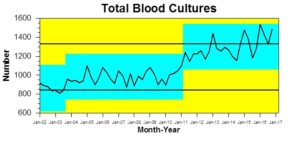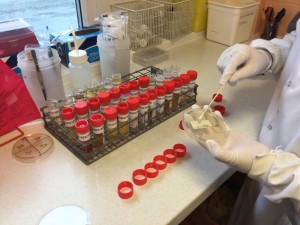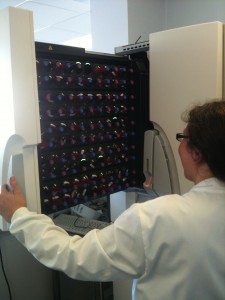 Medicine is a serious business and when you hear harrowing stories of sepsis, how do you respond? Certainly, many of the accounts you will read, or perhaps you have witnessed through personal exposure to family or friends who have had some form of sepsis, can be very disturbing. Survivor accounts can be as equally distressing to all those allied to the caring professions and for all of us beg the question, what more can we do to improve diagnosis? In Wales, as in other parts of the UK early recognition and detection of sepsis is key to early interventions. The … Read the rest
Medicine is a serious business and when you hear harrowing stories of sepsis, how do you respond? Certainly, many of the accounts you will read, or perhaps you have witnessed through personal exposure to family or friends who have had some form of sepsis, can be very disturbing. Survivor accounts can be as equally distressing to all those allied to the caring professions and for all of us beg the question, what more can we do to improve diagnosis? In Wales, as in other parts of the UK early recognition and detection of sepsis is key to early interventions. The … Read the rest
Catheter urine sampling
 I had a call this morning from one of our very talented staff nurses who wanted to check out carefully her understanding of when it is appropriate to send a sample for urine in a catheterised patient. She explained that she had an elderly patient and the patients daughter had suggested that the catheter urine should be sent to our laboratory on a weekly basis to check for infection.
I had a call this morning from one of our very talented staff nurses who wanted to check out carefully her understanding of when it is appropriate to send a sample for urine in a catheterised patient. She explained that she had an elderly patient and the patients daughter had suggested that the catheter urine should be sent to our laboratory on a weekly basis to check for infection.
The patient did not have any symptoms or signs to suggest urinary infection and had therefore advised that sampling was inappropriate but was facing a series of questions and could I … Read the rest
Urine triggers
 One of my lab scientists highlighted how a few years ago, when working in a smaller laboratory at a time when they were severely short staffed, they had to take the urgent decision to stop testing any urine sample that came into the laboratory without any clinical details.
One of my lab scientists highlighted how a few years ago, when working in a smaller laboratory at a time when they were severely short staffed, they had to take the urgent decision to stop testing any urine sample that came into the laboratory without any clinical details.
There was a two fold effect: the absolute numbers of urine samples arriving in the laboratory, prior to any being rejected for lack of clinical information reduced and secondly, the clinical information on those samples arriving improved dramatically.
Some time later, the staffing situation improved and the lab felt able to stop … Read the rest
Care home conference
 I always welcome the opportunity to visit the National Botanic Garden of Wales so was delighted to be invited to discuss how the Hywel Dda’s paradigm shift in thinking about the management of healthcare associated will support our local care homes.
I always welcome the opportunity to visit the National Botanic Garden of Wales so was delighted to be invited to discuss how the Hywel Dda’s paradigm shift in thinking about the management of healthcare associated will support our local care homes.
The conference, “Working together to promote health, wellbeing and quality of life” was opened by Sarah Rochira, Older People’s Commissioner for Wales where she discussed elements of her care home review, “A place to call home?”
I was struck by her messages around the wellbeing agenda for older people in our community and what “good” looked like in those … Read the rest
Blood cultures: an important test
One of the most important microbiological investigations we undertake is the blood culture. This is because blood does not normally have bacteria swimming around in it and therefore unlike from non-sterile sites, we can view any organism from a blood culture as potentially serious.
That said, as with any test we undertake, the opportunity for a sample to become contaminated is ever present. This is just as true for blood culture because the sample is taken from a vein and access to the vein is via a needle through the skin. Skin is not sterile but is home to many … Read the rest
Should I worry about Healthcare Associated Infections?
This is a healthy question for any potential patient to ask of their medical advisors, particularly if they are about to go into hospital for some form of healthcare intervention, be it surgery or some other form of therapy. Every potential patient should be advised of all the risks they may face – that’s part of understanding and determining their decision to proceed with the advice of their physician.
The unhealthy question is much more the specific: “Should I be worried about MRSA or C diff?” It’s understandable that people ask about specific organisms but it is rather a failure … Read the rest

